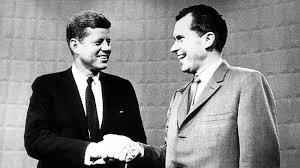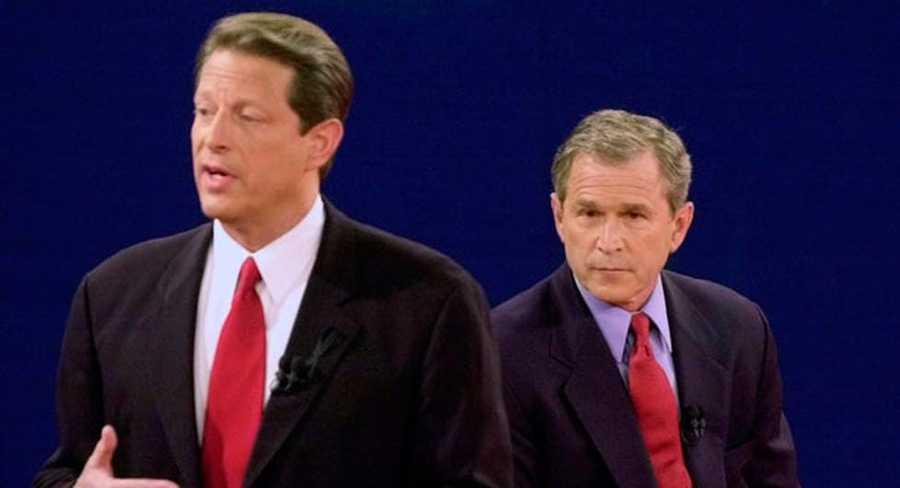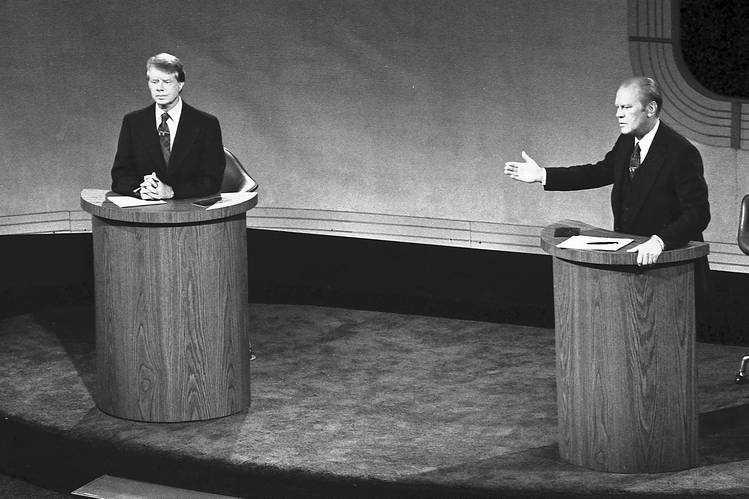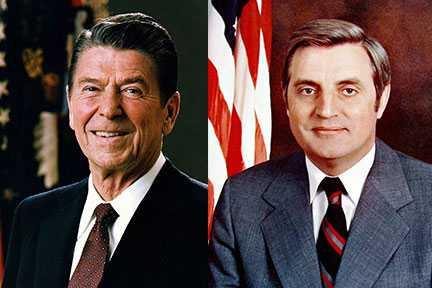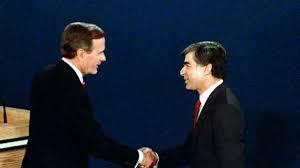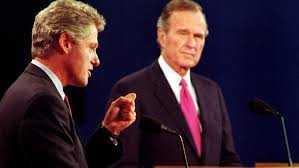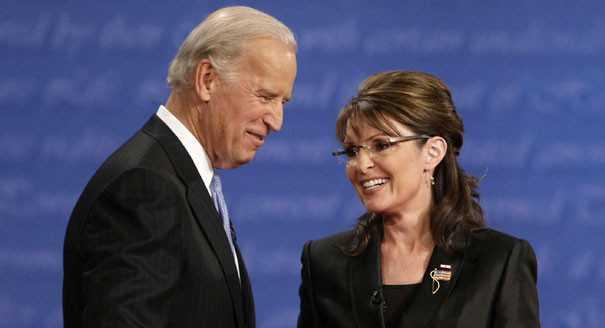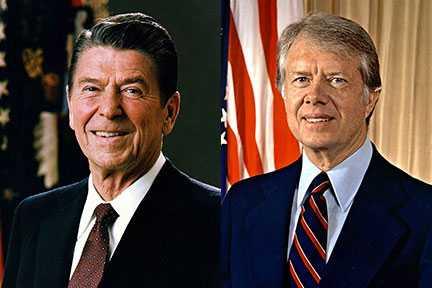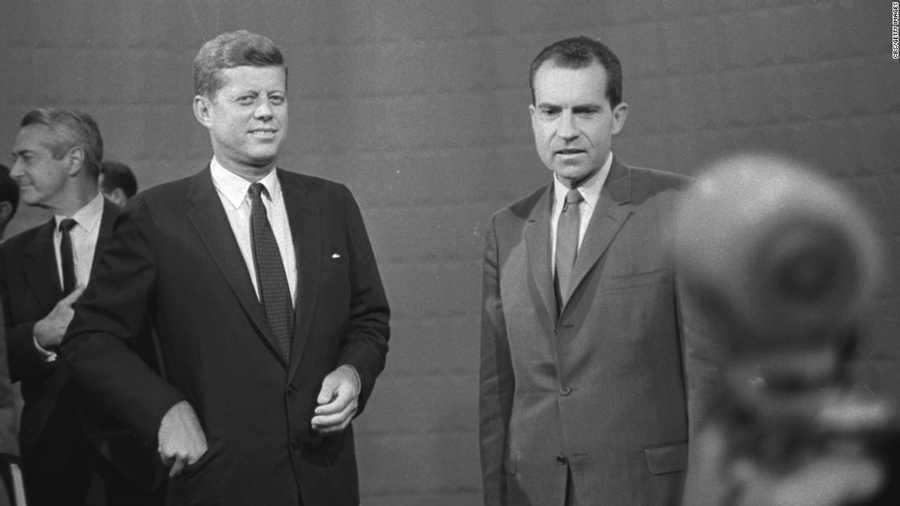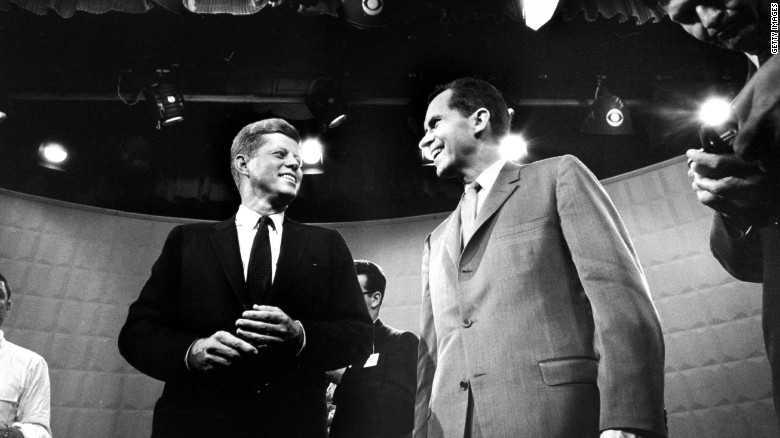Learn more about personaldevelopment with this collection
How to overcome fear of rejection
How to embrace vulnerability
Why vulnerability is important for personal growth
1960 — Kennedy v. Nixon
The first televised presidential debate in U.S. history may be the most consequential.
Political mythology holds that Americans who listened to the debate on the radio thought Nixon was better, while those who watched it on television thought Kennedy was better.
30
142 reads
MORE IDEAS ON THIS
2000 — Gore v. Bush
Vice President Gore was sighing during Bush's answers and deemed smug and disrespectful. Then, he appeared to be ready to pounce on Bush physically, and his aggressiveness was held against him.
26
72 reads
1988 — Quayle v. Benson
Veteran Texas Senator Lloyd Bentsen faced off against the youthful (and many argued inexperienced) Indiana Sen. Dan Quayle.
During the debate, Quayle tried to link himself to the legacy of former President John F. Kenndey. But Bentsen said, "I served with Jack Kennedy. I knew Jack Kenn...
24
78 reads
Debates have a major impact
There’s a reason why we place such importance on debates: They show us things about candidates that other venues do not, but they may also overwhelm everything else we know about the candidate.
31
183 reads
1976 — Carter v. Ford
A moment that may have impacted the final result was when Ford stumbled over a question during their second debate regarding Poland, which he insisted was not under "Soviet domination." It was, and Ford had to retract his statement, contributing to the view that he was in over his head.
25
113 reads
1984 — Reagan v. Mondale
Reagans first televised debate against Mondale brought renewed focus on his advanced age (Reagan was 73 at the time) and raised questions about how engaged he was in the business of the White House.
However, Reagan was able to diffuse it with a simple joke: "I will not make age an issu...
27
88 reads
1988 — Bush v. Dukakis
The beginning of the end of Michael Dukakis' once-promising presidential run was when he was asked about an arguably "gotcha" question about whether he would stand by his anti-death penalty position even if his wife were "raped and murdered."
In the years since, Dukakis defended h...
25
86 reads
1992 — Bush v. Clinton v. Perot
The unusual inclusion of a third party candidate insured an even greater level of interest in the 1992 presidential debates.
The first so-called "town hall" format was introduced. This format was very favorable to the Arkansas Gov, Bill Clinton, who was known for his physical comfo...
25
71 reads
2008 — Palin v. Biden
Sarah Palin, the polarizing Alaska governor, entered the stage following a series of embarrassing headlines and poorly received interviews. Sen. Joe Biden had to walk a delicate balance since there was an increased sensitivity to sexism in the campaign.
The debate ended up without any majo...
25
88 reads
1980 — Reagan v. Carter
There was widespread dissatisfaction with Carter but also concerns about Reagan's experience and temperament.
With their first and only televised debate late in the election, Reagan convinced the American voters he was up for the job with a single liner ("There you go again") and an FD...
25
85 reads
2012 — Obama v. Romney
After a dull first debate, President Obama saw his re-election chances in trouble. During his second prime-time against Republican Mitt Romney, Romney tried to rebuke Obama for allegedly not calling the recent embassy attack in Benghazi a terrorist attack.
A confident Obama urged moderator...
25
124 reads
CURATED FROM
IDEAS CURATED BY
Related collections
Other curated ideas on this topic:
The first televised debate
The first televised debate from 1960 between John F. Kennedy and Richard Nixon helped Kennedy become more popular, only because of his good looks, while Nixon, just recovered from a recent hospitalization, lost points.
The impact of the television could be easily seen then, as the peopl...
1960: Beginning of televised debates
The contest between John F. Kennedy and Richard Nixon marked another precedent: the first time that presidential debates were televised.
- Nixon had recently been hospitalized. He refused to wear makeup, giving him a thin, sickly appearance. He wore a gray suit that made him blend int...
The influence of TV on politics
Ever since the first televised debate between Kennedy and Nixon, back in 1960, television has been playing an essential role in influencing people's political choices. After sixteen years of break, starting with 1976, televised debates have become standard practice in politics.
What...
Read & Learn
20x Faster
without
deepstash
with
deepstash
with
deepstash
Personalized microlearning
—
100+ Learning Journeys
—
Access to 200,000+ ideas
—
Access to the mobile app
—
Unlimited idea saving
—
—
Unlimited history
—
—
Unlimited listening to ideas
—
—
Downloading & offline access
—
—
Supercharge your mind with one idea per day
Enter your email and spend 1 minute every day to learn something new.
I agree to receive email updates
